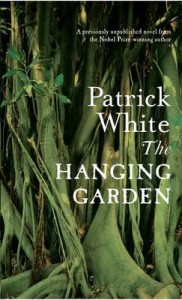 Title: Love in the Years of Lunacy (Goodreads)
Title: Love in the Years of Lunacy (Goodreads)
Author: Mandy Sayer
Published: Atria Books, 2011
Pages: 320
Genres: Historical Fiction, Romance
My Copy: Library Book
Buy: Amazon, Book Depository (or visit your local Indie bookstore)
I admit historical romance is not something you’d expect me to read but I’m all for literary exploration, so I thought I would give this Australian novel a go. Love in the Years of Lunacy is a typical story of forbidden love, set in war time Sydney. Eighteen year old Pearl is an alto sax player in an all girl jazz band that one day meets African American and jazz legend James Washington and quickly fall in love. While Australia didn’t have any laws to prevent them from falling in love or marrying, like America did, their love was taboo. While there is a lot more that I could probably say to summarise this book, you get the picture and probably can predict what happens. What I want to do is vent all my frustrations about this book (potential spoilers from here on out).
1. Historically Inaccurate
I’d probably enjoy this book a lot more if it wasn’t for the huge inaccuracy that happens in the book. The scene happens while the two love birds are at Luna Park, air raids sound and Sydney is under attack; but wait, there were no bombing in Sydney during World War 2, there was the submarine attack but this book made it sound like Sydney was getting bombed. Why? Most likely wanting to use this as an excuse for the two characters to have sex.
2. Misdiagnosis
So when the two are inevitably separated, Pearl tries to commit suicide; she says she doesn’t want live in a world without him. The Master of Lunacy (this title is government appointed to act as the authority in civil commitment proceedings) diagnoses her of having a fear of dying but when he talked to her and asked her, she told him that she was afraid of dying.
3. Faking it
You know the typical ‘fake that you’ve gotten better’ to stop having to be constantly under supervision? Pearl does this to stop herself from being bored but she did it so well that I think even the writer forgot about her depression after that paragraph ended.
4. The Marriage Proposal
Pearl fakes her recovery so well, she ends up dating the Master of Lunacy; what? Does this not seem like an issue, an irresponsible doctor/patient relationship? Let alone the fact that Pearl was faking being over her depression and over James, so much so she falls in love with the doctor.
5. Cross Dressing Soldier
I get that a woman can fake being a man but faking being a solder in a war zone seems like a huge stretch. Especially when the writer likes to remind the reader just how beautiful Pearl is through the book. But tuck your hair under a hat and bandage her breasts up to make herself look flatter; that would work. How about when she got her period and the blood stained her pants? No one noticed that?
There is so much more I can think of that didn’t sit write with me in this book. I think there was a point I only found out Pearl was a blonde when she showed off her pubic hair to prove she wasn’t a male soldier. I did like the way this book was told in a way that a fictional Indigenous crime writer was listening to the tape recordings of his mother (who he thought was his aunt and also thought he was indigenous at the same time). But apart from that, I have too much I disliked about the book to really enjoy the story. I’ve had my rage about this book now; I can finally get it out of my mind.

 Title: Dark Matter (
Title: Dark Matter ( Title: All That I Am (
Title: All That I Am ( Title: Wolf Hall (
Title: Wolf Hall ( Title: Railsea (
Title: Railsea ( Title: The Mountain (
Title: The Mountain ( Title: We (
Title: We ( Title: Final Crossing (
Title: Final Crossing ( Title: The Adventures of Sherlock Holmes (
Title: The Adventures of Sherlock Holmes ( Title: The Hanging Garden (
Title: The Hanging Garden (